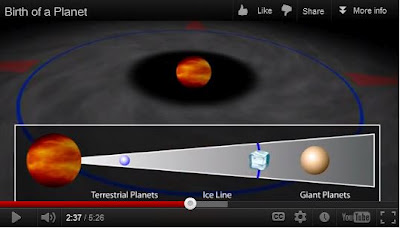

| Visitors Now: | |
| Total Visits: | |
| Total Stories: |

| Story Views | |
| Now: | |
| Last Hour: | |
| Last 24 Hours: | |
| Total: | |
Birth Of A Planet
The Earth and the planets of our solar system are not alone in the universe. Over the past few decades, the hunt for extrasolar planets has yielded incredible discoveries, and now planetary researchers have a new tool—simulated models of how planets are born.
Most planets form when a molecular cloud collapses into a young star. The leftover gas and dust form a disk around the star, and the particulates inside the disk begin to collide and coalesce over millions of years, forming larger and larger objects until a planet eventually takes shape.
Sally Dodson Robinson, astronomer, and her team of researchers at The University of Texas at Austin are modeling and simulating these protostellar disks. The simulations model important factors such as the turbulence and temperature of the disk, which affect how and where planets form. In a disk that is too turbulent, the particles move too fast and bounce off each other. Less turbulence means a greater chance for them to collide and stick together.
Discoveries like this are a result of the complexity of the models and simulations, which cover a timescale of millions of years. The considerable computation involved in this project was facilitated by the Ranger supercomputer at the Texas Advanced Computing Center (TACC).
In 1988, we knew of one solitary extrasolar planet. In 2012, we know of almost 2,400 awaiting confirmation. Understanding the conditions that are most favorable for planet formation will aid researchers like Sally Dodson Robinson in discovering more of them, and will also provide greater understanding of the evolution of Earth and our own solar system.
Contacts and sources:



